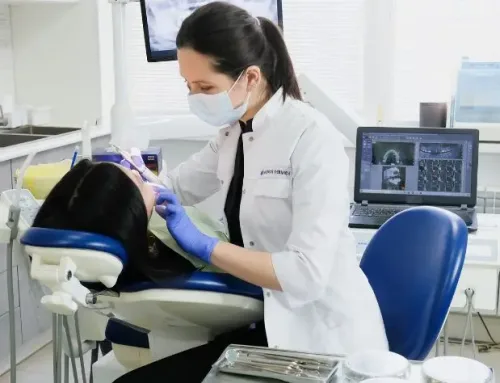Child Life Specialist: A Day in the Life and What to Expect
Ever wondered what a child life specialist day in the life looks like? If you’ve ever wondered who helps children cope with the stress of hospital visits, Child Life Specialists (CLS) play a crucial role in pediatric healthcare. These trained professionals use play, education, and emotional support to ease anxiety, helping young patients and their families navigate the challenges of medical treatment. Their work is a blend of compassion, psychology, and advocacy—ensuring that children feel seen, heard, and comforted in an unfamiliar environment.
From preparing kids for procedures to offering therapeutic activities, CLS professionals are the bridge between medical teams and young patients. But what does a typical day look like? Let’s take a closer look at how they support children and families, turning stressful moments into opportunities for comfort, learning, and resilience.
Where Do Child Life Specialists Work?
Child Life Specialists are best known for their work in hospitals, but their impact reaches far beyond pediatric wards. From emergency rooms to community programs, they bring comfort and stability to children facing medical challenges. Here’s a look at the diverse places where they make a difference.
Children’s Hospitals & Pediatric Units
Children’s hospitals and pediatric units are the backbone of child life services. This is where specialists spend their days preparing kids for medical procedures, guiding them through treatments, and making sure the hospital feels more comfortable and safe. Whether through medical play, storytelling, or just a reassuring presence, they help kids feel safe in an unfamiliar world.
Emergency Rooms (ERs)
Few places are more stressful for a child than an ER—bright lights, rushing doctors, and the uncertainty of what comes next. Child Life Specialists act as a steady presence, helping kids process what’s happening, offering distractions during procedures, and keeping parents informed. Their work isn’t just for comfort; it helps medical teams do their jobs more efficiently when a calm, cooperative child is part of the equation.
Outpatient Clinics & Rehab Centers
For kids managing chronic illnesses, ongoing treatments, or physical rehabilitation, outpatient clinics and rehab centers become a second home. Child Life Specialists in these settings help young patients build coping skills, stay engaged in their treatment, and find ways to be kids despite the medical routines. Their support makes the long road of treatment feel a little less daunting.
Hospice & Palliative Care
This is the side of child life work that doesn’t get talked about enough—but it’s just as essential. In hospice and palliative care, Child Life Specialists help families navigate the hardest conversations, offering emotional support and therapeutic activities that help children express themselves. It’s delicate, deeply human work that brings light to even the most difficult moments.
Community Programs & Nonprofits
Not all child life work happens inside hospital walls. Many specialists take their expertise into schools, community centers, and nonprofit organizations, supporting children who have experienced trauma, chronic illness, or medical stress. They run hospital outreach programs, organize therapeutic camps, and ensure that emotional support extends far beyond a hospital stay.
Wherever kids face medical challenges, you’ll find a Child Life Specialist ready to help. Their work isn’t tied to a single place—it’s tied to the needs of children and families, wherever that may be. Whether calming a child in the ER, helping a family through palliative care, or bringing hospital-based resources into the community, they make the healthcare experience more human, more manageable, and more compassionate.
Inside the Day of a Child Life Specialist
Morning: Starting the Day & Reviewing Patient Cases
The day begins with reviewing patient cases and collaborating with the healthcare team. Doctors, nurses, and social workers provide updates, and Child Life Specialists determine which patients need support. Some children are preparing for procedures, while others may be struggling emotionally. Each case is different, requiring a tailored approach.
One of the first visits might be to a child scheduled for surgery. Using child-friendly explanations, a CLS professional walks them through what to expect. Medical play with toy stethoscopes and masks turns an unfamiliar experience into something more manageable, easing pre-surgery jitters.
Mid-Morning: Preparing Children for Medical Procedures
For children facing intimidating procedures like MRIs or IV insertions, preparation is key. Child Life Specialists use hands-on demonstrations, storybooks, and play therapy to explain what’s happening in a way that feels safe and understandable. A five-year-old with leukemia might learn about chemotherapy through dolls and picture boards, helping them visualize the process. A teenager preparing for an MRI may practice staying still inside a pretend scanner, easing their nerves before the real thing. For a toddler afraid of needles, watching a stuffed animal “get an IV” can make the experience feel less overwhelming. These strategies help children gain a sense of control, reducing fear and anxiety in medical settings.
Lunch Break & Documentation
Midday is a chance to catch up on patient notes, documenting interactions and progress. Lunch might be shared with fellow CLS professionals, where stories, challenges, and moments of joy are exchanged. This isn’t just a break—it’s a crucial part of building a strong support system in an emotionally demanding job.
Afternoon: Helping Patients Cope & Supporting Families
Afternoons bring a mix of one-on-one patient support and group activities. A visit to a child recovering from surgery might include guided relaxation techniques or a distraction like storytelling. Another stop could involve comforting a parent who is struggling to process their child’s diagnosis.
Later, a group activity brings hospitalized children together for an art therapy session. Painting, music, or puppet shows provide an outlet for creativity and expression, helping children process emotions in a non-verbal way.
End of the Day: Debrief & Planning for Tomorrow
As the day winds down, notes are finalized, and the team gathers for debriefing. Patient progress, upcoming procedures, and emotional challenges are discussed to ensure continuity of care. The workday may be over, but for a Child Life Specialist, the impact of their role continues long after they leave the hospital walls.
The Must-Have Skills for Every Child Life Specialist
Empathy & Compassion
At the core of every Child Life Specialist’s work is the ability to connect with children in distress. Whether it’s a toddler afraid of an IV or a teenager processing a new diagnosis, these professionals offer comfort without sugarcoating reality. They listen, validate emotions, and provide reassurance in moments that feel overwhelming.
Strong Communication Skills
Hospitals are full of intimidating jargon and complex procedures. Child Life Specialists act as translators, breaking down medical terms into language that makes sense to a child. A simple analogy, a hands-on demonstration, or even a playful story can turn confusion into understanding.
Play Therapy & Creative Problem-Solving
Children don’t just process fear through words; they express it through play. Child Life Specialists use dolls, puppets, and interactive games to make medical procedures feel less scary. A child about to get an MRI might “practice” staying still while their teddy bear goes through a pretend scanner. These moments transform medical settings into spaces of learning and empowerment.
Collaboration & Teamwork
A Child Life Specialist is never working alone. They are part of a larger care team, working alongside doctors, nurses, therapists, and social workers to provide holistic support. Effective teamwork ensures that each child’s emotional and psychological needs are prioritized alongside their medical treatment.
Crisis Management
In emergency situations, there’s no time to hesitate. Whether comforting a child in a trauma unit or supporting a family receiving difficult news, Child Life Specialists remain steady in moments of crisis. Their ability to stay calm, think quickly, and provide immediate emotional support is what makes them an indispensable part of pediatric care.
Thinking of Becoming a Child Life Specialist? Here’s How You Can
Helping children feel safe and supported in a hospital setting isn’t something you can just wake up and do—it takes the right education, hands-on experience, and certification. But if you’re passionate about working with kids and making tough moments a little easier, the journey is absolutely worth it.
Educational Requirements
Firstly you’ll need a strong academic foundation in child development, psychology, or health sciences. Most Child Life Specialists earn a Bachelor’s degree in child life studies, or a bachelor of Science in Health Sciences, Child Development, or Psychology. These programs cover key areas like:
- Child psychology and development
- Family dynamics in healthcare settings
- Medical terminology and procedures
- Therapeutic play and coping strategies
A degree alone isn’t enough, though. Child Life Specialists work directly with young patients and their families, so understanding both the science and emotional side of pediatric care is crucial.
Certification & Internships
This is where things get real. Before you can officially call yourself a Certified Child Life Specialist (CCLS), you’ll need to complete:
- A 600-hour clinical internship under the supervision of experienced professionals
- Hands-on training in pediatric hospitals, rehab centers, or outpatient clinics
- Practical experience in play therapy, emotional support, and procedure preparation
Once that’s done, you’ll take the Certified Child Life Specialist (CCLS) exam, which tests your knowledge of child development, healthcare practices, and patient support techniques.
Job Search & Career Growth
Getting your first job as a CLS is all about knowing where to look. The best places to start include:
- Hospital job boards and pediatric care centers
- Professional networks like the Association of Child Life Professionals (ACLP)
- Internships that turn into full-time opportunities
And the growth doesn’t stop there. Many CLS professionals move into leadership roles, guiding new specialists or developing child life programs. Others specialize in areas like palliative care, trauma support, or research, shaping the future of pediatric healthcare.
Ready to Make a Difference? SCU Can Get You There
Becoming a Child Life Specialist takes more than just passion—it requires the right education, hands-on training, and preparation for the certification process. At Southern California University of Health Sciences (SCU), we provide the foundation you need to turn your goals into a fulfilling career in pediatric healthcare.
Our Bachelor of Science in Health Sciences (BSHS) program is designed with flexibility and career preparation in mind. Whether you’re just starting your education or transferring credits, our program offers a strong foundation in:
- Psychology & Health Sciences Gain the knowledge necessary to support children and families in medical settings.
- Integrative Healthcare Approaches Learn how emotional and psychological well-being play a role in pediatric healthcare.
- Critical Thinking & Communication Develop skills that are essential for working in hospitals, clinics, and community health programs.
We offer a fully online degree completion option, making it easier for students to balance education with other commitments. Our streamlined structure allows students to take two focused courses per term, helping them absorb material more effectively.
Why SCU?
We don’t just prepare students academically—we set them up for long-term success in the field. Our BSHS program is designed to be:
- Flexible Study full-time or part-time, entirely online.
- Career-Focused A curriculum designed for healthcare careers.
- Supportive A dedicated team of advisors and faculty to guide your journey.
For those considering further education, our accelerated pathways allow students to transition into master’s or doctoral programs, saving time and tuition.
Ready to Make a Difference? Join Us Today!
A career as a Child Life Specialist is more than just a job—it’s a chance to bring comfort and understanding to children facing medical challenges. At SCU, we offer a flexible, career-focused Bachelor of Science in Health Sciences program designed to help you build the knowledge and skills needed to succeed.
If you’re ready to take the next step, now is the time. Explore our admissions process and apply today.
FAQs
What does a Child Life Specialist do on a daily basis?
A Child Life Specialist supports children in hospitals by explaining medical procedures, providing emotional comfort, and using play therapy to reduce stress. Their day includes working with doctors, preparing kids for treatments, and helping families cope with the challenges of pediatric healthcare.
Is becoming a Child Life Specialist a good career choice?
If you’re passionate about working with children and want a career that blends healthcare, psychology, and education, it’s a fantastic choice. It’s a highly rewarding field where you can make a real impact on a child’s hospital experience.
What qualifications do you need to be a Child Life Specialist?
You’ll need a bachelor’s degree in a relevant field (like Health Sciences or Child Development), a 600-hour internship, and certification through the Child Life Specialist (CCLS) exam. Hands-on experience with children in healthcare settings is also crucial.
How does your program help prepare students for a career as a Child Life Specialist?
Our Bachelor of Science in Health Sciences (BSHS) helps students develop healthcare knowledge, communication skills, and an interdisciplinary approach to patient care, all valuable for those interested in pediatric settings. With coursework in health education, integrative health, and human sciences, students gain a strong foundation that can support careers in child-focused healthcare roles.
How can I apply for the program?
It’s simple! Visit our admissions page to review the degree requirements, transfer credit options, and upcoming start dates. If you’re ready to take the next step, simply submit your application!
Related Posts





